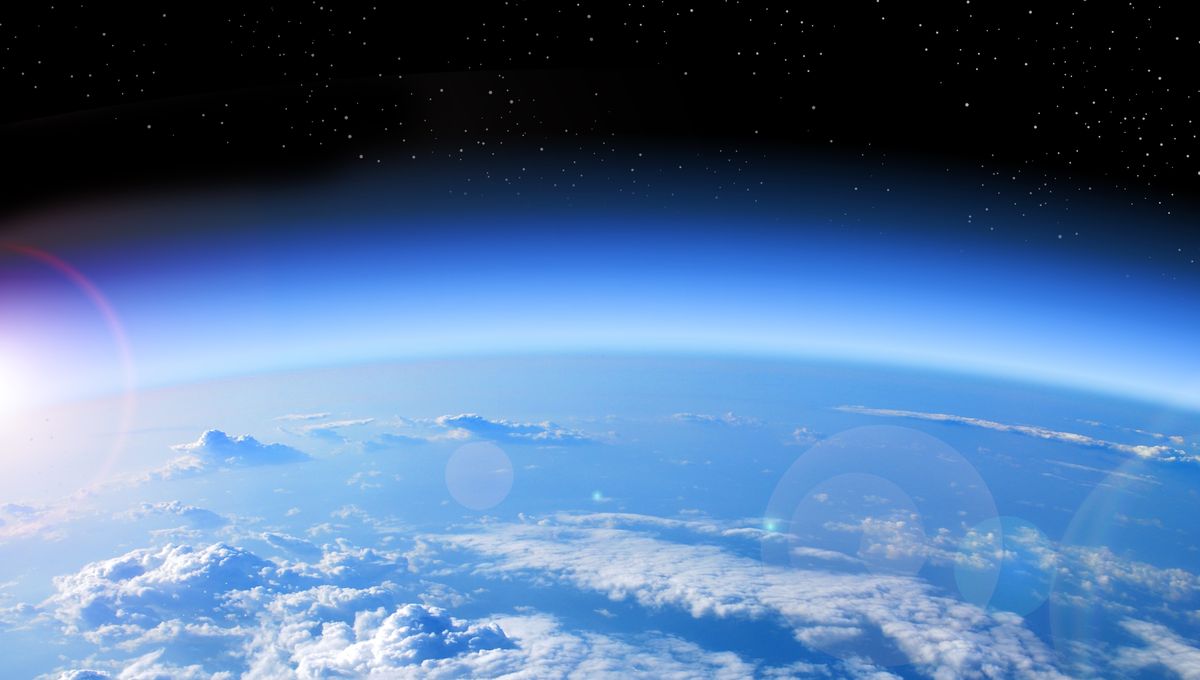
A new study has quantified how much the ozone in the atmosphere contributes to the planet’s energy budget – the balance of sunlight received versus heat radiated that affects the Earth’s temperatures. A lot of things affect this budget, and it turns out that if you were to remove the ozone, the planet would likely get colder. And by a fair bit.
The work uses a model for the Earth’s climate that describes how the energy budget is influenced by various atmospheric compositions. By reducing the amount of ozone, they found that the average temperature of the planet also dropped. At almost zero ozone, the planet would be 3.5°C (6.3°F) cooler than it is today, a temperature approaching those seen during the last ice age. The requirement in the model was that the amount of carbon dioxide stayed the same.
The energy budget, at a very basic level, works like this: the Sun heats up the Earth, and our planet radiates it back into space. But not all of the energy is radiated out. The ocean, the ground, and the atmosphere absorb some of it, keeping it trapped and radiating the rest. But the atmosphere’s composition affects how much of the heat radiated from the surface escapes back into space. Greenhouse gases in particular have been terribly efficient at trapping heat. This has led to the unfolding climate crisis.
Ozone is technically a greenhouse gas, but the effect of it as negative or positive for the energy budget depends very much on where it is. Obviously, its best location is in the ozone layer. Located in the stratosphere at about 50 kilometers (30 miles), it protects life on Earth from the dangerous ultraviolet light from the Sun. At 20 kilometers, it is bad, as it absorbs heat and acts fully as a greenhouse gas. At lower altitudes, it once again becomes helpful by destroying pollutants, and it is bad again at ground level as it plays a role in the formation of smog.
Ozone is literally telling us to not typecast it as a hero or a villain. Now, given the fact that we have destroyed a good chunk of the ozone layer during the last century, you might think that is somehow good news for the climate crisis. Sure, the rate of skin cancer might have increased but have we possibly staved off the worse of the climate crisis? Not at all. Actually the very opposite is true.
Ozone-depleting chemicals such as chlorofluorocarbons are tens of thousands of times more powerful at trapping heat than carbon dioxide. Banning them in 1987 with the Montreal Protocol, and every country in the world taking that danger seriously, has provided substantial delays in the melting of the ice in the Arctic. So, we might be further along in the climate crisis were it not for the world’s work to save the ozone layer. And the ozone is recovering.
The paper describing the effect of an ozone-less planet has been accepted for publication in Climate of the Past and is available on the preprint server arXiv.
[H/T: Universe Today]
Source Link: Without The Ozone Layer, This Is What Our Planet Would Be Like